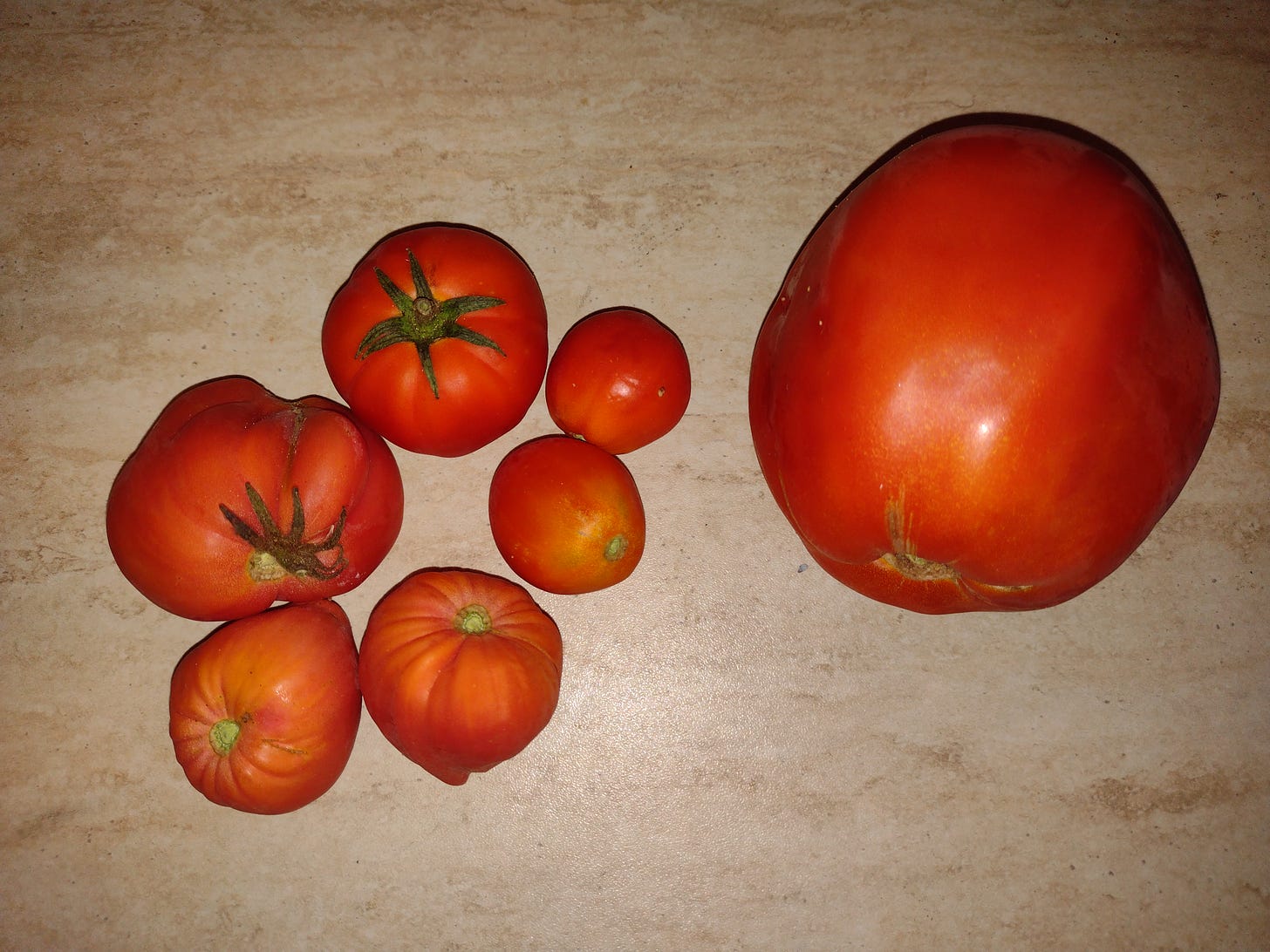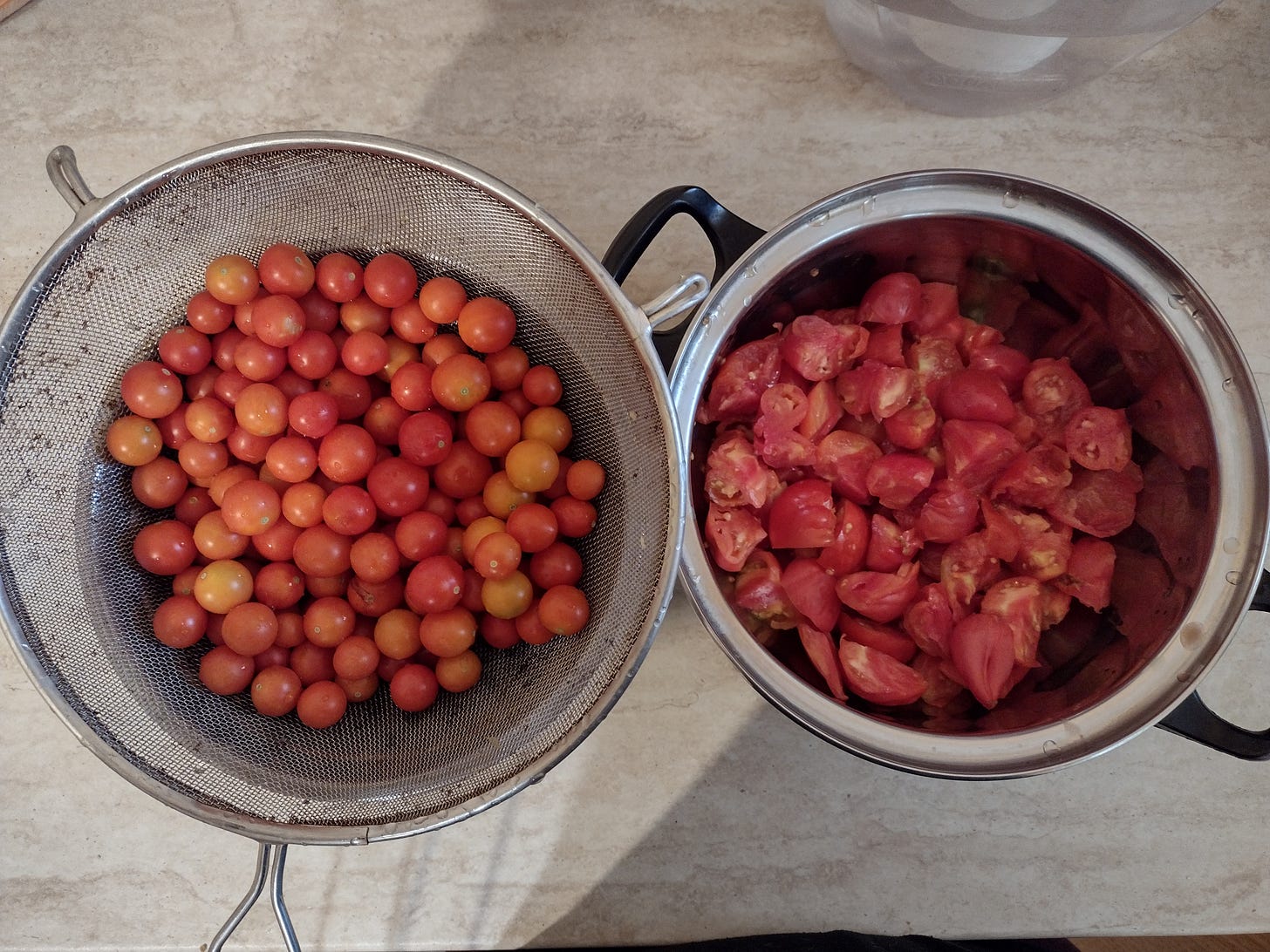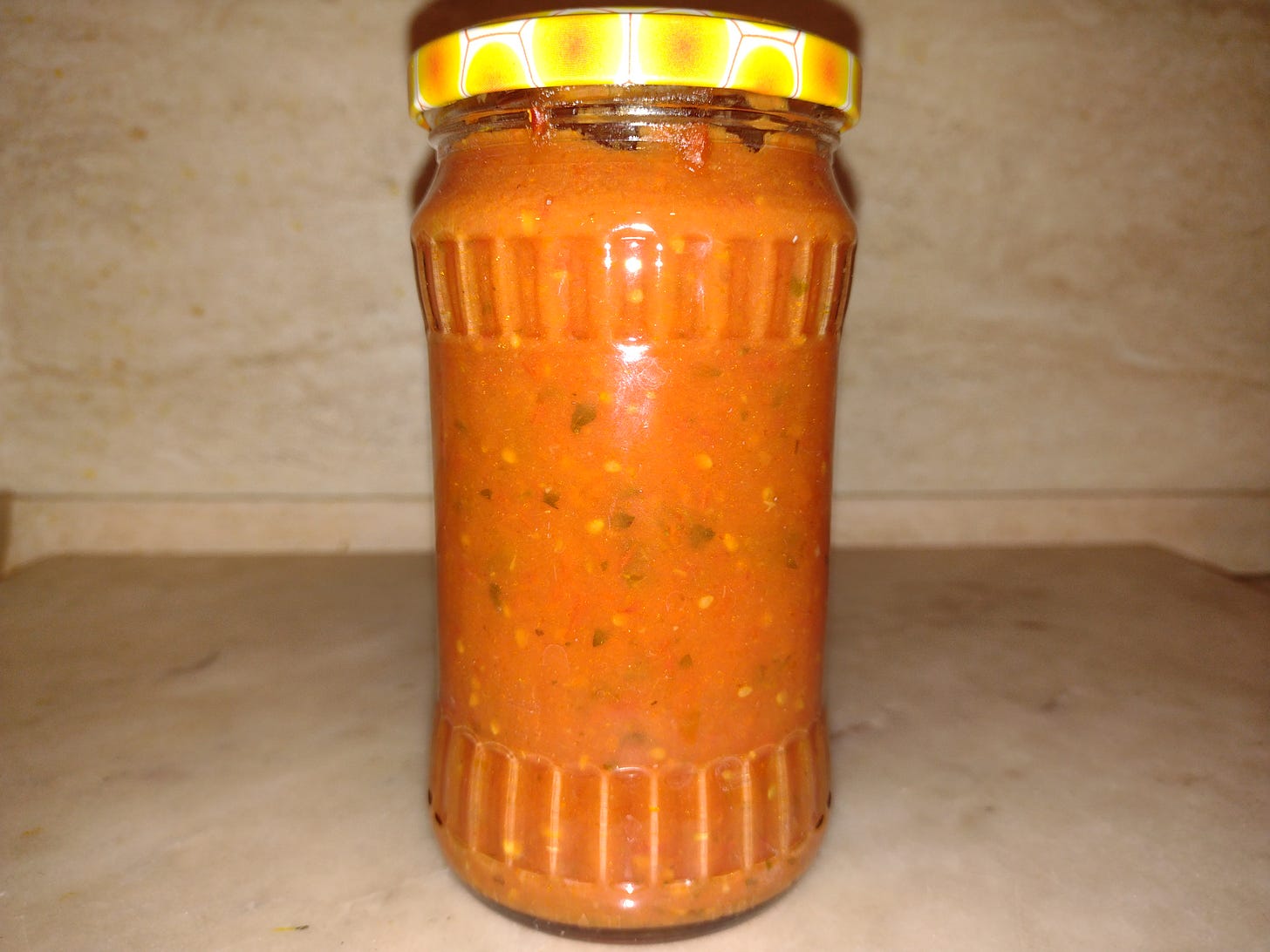It has probably transpired here in earlier posts that we have a special place in our hearts for tomatoes. Indeed, they could probably be called the national vegetable seeing as the traditional meal foreigners are typically told to try is the Shopska salad, featuring local tomatoes. Bulgarian expats coming home on holiday sing odes to the tomatoes. Odd but there it is.
In keeping with this significance of the tomato plant, there is hardly a self-respecting country household that doesn’t try to grow its own tomatoes. It is the ultimate summer salad product and the equally ultimate winter preserve product in the form of plain canned, pureed, or mixed with roasted red peppers and maybe an aubergine or two for that other traditional treat, the liutenitsa. In short, tomatoes are important.
As as reasonably self-respecting household, we, too, tried to grow our own tomatoes. In fact, we kind of outdid ourselves on tomatoes, as related here. We had a lot of tomato plants this year and they all took nicely. Then the June heat dropped and they started suffering. We still got a pretty decent crop, which confirmed the hypothesis that if you can’t trust any individual tomato plants to bear abundant fruit, you can hedge your bets by planting a lot of tomato plants.
So, we grew a lot of tomatoes this year. There was just one problem — they were small and, well, rather ugly. Then they also started getting dry on the stalk despite the regular watering, so about a week ago we called time on the first tomato harvest. And then we had to decide what to do with it because we couldn’t eat it all in salads. The tomatoes weren’t properly juicy and delicious.
Here, our sample looks rather decent. Add a reference point, however, and…
To the right is a normal-sized tomato from our neighbours’ garden. By normal-sized we mean the size of an average woman’s fist. That should put out ugly tomatlings in perspective. With or without perspective, we had to do something with them. So we decided to do a soup and stew additive, to use in winter.
The cherries really overperformed and all of the late ones went into the pot with the rest of what we grew.
A bit (quite a bit) of oregano, three homegrown onions, a tablespoon of salt, a teaspoon of sugar, and we were ready to roll or, as it happens, chop.
It looks rather unappetising, to be sure, but this was before we cooked it over medium heat until the colour changed. Once it did, the concoction was ready to go into the jars and seal itself as it cools. Because none of us can be bothered with sterilisation, we simply pour the hot jam/preserve/whatever into the jars, tighten the lids and place the jars upside down for a few minutes. This, Cris explains, creates vacuum inside, sealing the lid to the jar. It works, too.
A spoonful of this in the potato soup or the chicken stew would, hopefully, add a taste of home gardening to any meal. We’re waiting for colder weather to try it. But that’s the great thing about tomatoes — even when they’re small, ugly and not very tasty raw, you can always turn them into something quite delicious.
P.S. Our second tomato batch just started flowering.









I have been small and ugly my whole life yet I make a good sauce, so I have been told. Good to see the garden yielded something.
Vine ripe Tomatoes are the garden produce I miss the most during the long, dark winters. My Chickens decimated most of them, but many other neighborhood gardens survived and made enough for the unluckier ones.
We used to be a tomato and tobacco farming community-- everyone helped pick, transport and pack tomatoes along with working thru the tobacco harvest and hay gathering. This was before the government convinced our elders the land we were occupying and farming was only viable for collecting tourist dollars and bought out the allotments they controlled.. big mistake that turned out gentrifying our communities to be taken over by consuming implanted folks who only build overly large houses while making the government taxation schemes work very well, while the local people were left to rot on the vine and be economically shut out.
Never trust government boondoggles brandishing their interests above what was working well for a pie in the sky life of ease. Lives of ease are bad for human health, while any food production is good for it.